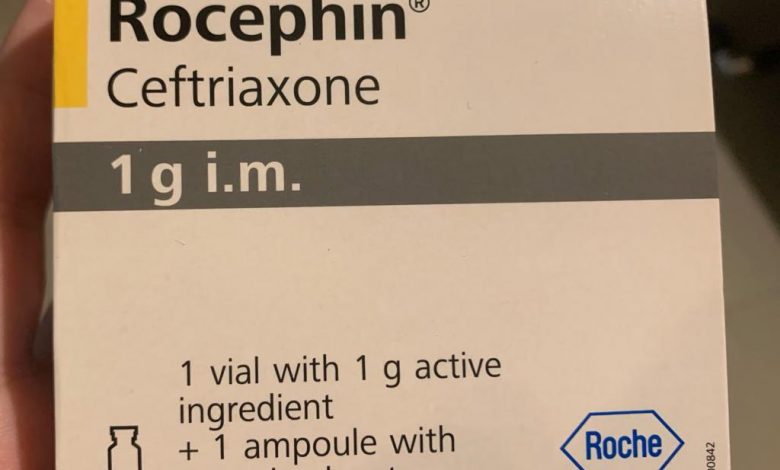Has Rocephin Been Discontinued?

Rocephin is a brand of ceftriaxone, a medication used to treat bacterial infections. It was first developed in the 1970s by the pharmaceutical company Hoffmann-La Roche (now Roche). Rocephin was approved by the U.S. Food and Drug Administration (FDA) in 1984 and has since become a widely used and effective antibiotic medication.
Rocephin belongs to a class of antibiotics called cephalosporins, which are used to treat a variety of bacterial infections. It is often used to treat infections such as pneumonia, meningitis, sepsis, urinary tract infections, and certain sexually transmitted infections.
Rocephin is administered either by injection into a muscle or vein, or by infusion through a drip. It is available in various strengths and formulations depending on the type of infection being treated and the patient’s age and weight.
Rocephin has been found to be generally safe and well-tolerated, although it can cause some side effects such as diarrhea, nausea, and rash. Rare but serious side effects can also occur, such as severe allergic reactions and the development of antibiotic-resistant bacterial infections.
Rocephin has been widely used in clinical practice for many years and continues to be an important antibiotic medication for the treatment of bacterial infections.
Why Was Rocephin Discontinued?
Yes, the Rocephin brand of ceftriaxone has been discontinued in the United States. However, Rocephin remains available in many countries and is commonly used in hospitals and other healthcare settings to treat a variety of bacterial infections.
It is important to note that medication discontinuations can occur for various reasons, including changes in manufacturing or distribution, safety concerns, and changes in market demand. Although Rocephin was associated with some serious side effects including cardiac arrest, anaphylactic and anaphylactoid reactions, it was still considered a safe medication.
The common side effects of Rocephin include:
- Black, tarry stools
- chest pain
- chills
- cough
- fever
- painful or difficult urination
- shortness of breath
- sore throat
- sores, ulcers, or white spots on the lips or in the mouth
- swollen glands
- unusual bleeding or bruising
- unusual tiredness or weakness.
If you have any concerns about the availability of Rocephin or any medication, I recommend speaking with your healthcare provider or contacting the manufacturer directly for more information.
Rocephin Alternatives
If you are looking for an alternative to Rocephin, there are several other antibiotics that may be effective for treating similar infections. Here are some examples:
1. Cefepime: This is a broad-spectrum cephalosporin antibiotic that is similar to Rocephin in its spectrum of activity. It is commonly used to treat infections such as pneumonia, urinary tract infections, and skin infections.
2. Azithromycin: This is a macrolide antibiotic that is often used to treat respiratory tract infections such as pneumonia and bronchitis, as well as skin and soft tissue infections.
3. Levofloxacin: This is a fluoroquinolone antibiotic that is used to treat a variety of bacterial infections, including respiratory tract infections, skin infections, and urinary tract infections.
4. Vancomycin: This is a glycopeptide antibiotic that is commonly used to treat infections caused by methicillin-resistant Staphylococcus aureus (MRSA) and other gram-positive bacteria.
It is important to note that the choice of antibiotic depends on the type of infection being treated, the sensitivity of the bacteria to the antibiotic, and other individual factors such as allergies and underlying medical conditions. It is recommended that you speak with your healthcare provider to determine which antibiotic is most appropriate for your individual needs and medical history.





